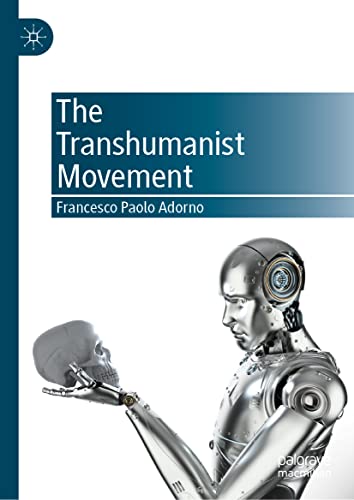
Guilt and defense
by Theodor W. AdornoBeginning in 1949, Theodor W.
Adorno and other members of the reconstituted Frankfurt Institute for Social Research undertook a massive empirical study of German opinions about the legacies of the Nazis, applying and modifying techniques they had learned during their U.
exile.
They published their results in 1955 as a research monograph edited by Friedrich Pollock.
The study's qualitative results are published here for the first time in English as Guilt and Defense, a psychoanalytically informed analysis of the rhetorical and conceptual mechanisms with which postwar Germans most often denied responsibility for the Nazi past.
In their editorial introduction, Jeffrey K.
Olick and Andrew J.
Perrin show how Adorno's famous 1959 essay The Meaning of Working Through the Past" is comprehensible only as a conclusion to his long-standing research and as a reaction to the debate it spurred; this volume also includes a critique by psychologist Peter R.
Hoffstatter as well as Adorno's rejoinder.
This previously little-known debate provides important new perspectives on postwar German political culture, on the dynamics of collective memory, and on Adorno's intellectual legacies, which have contributed more to empirical social research than has been acknowledged.
A companion volume, Group Experiment, will present the first book-length English translation of the Frankfurt Group's conceptual, methodological, and theoretical innovations in public opinion research.
"--BOOK JACKET.
About Theodor W. Adorno
Theodor Wiesengrund Adorno was one of the most important philosophers and social critics in Germany after World War II. Although less well known among anglophone philosophers than his contemporary Hans-Georg Gadamer, Adorno had even greater influence on scholars and intellectuals in postwar Germany. In the 1960s he was the most prominent challenger to both Sir Karl Popper's philosophy of science and Martin Heidegger's philosophy of existence. Jürgen Habermas, Germany's foremost social philosopher after 1970, was Adorno's student and assistant. The scope of Adorno's influence stems from the interdisciplinary character of his research and of the Frankfurt School to which he belonged. It also stems from the thoroughness with which he examined Western philosophical traditions, especially from Kant onward, and the radicalness to his critique of contemporary Western society. He was a seminal social philosopher and a leading member of the first generation of Critical Theory.Unreliable translations hampered the initial reception of Adorno's published work in English speaking countries. Since the 1990s, however, better translations have appeared, along with newly translated lectures and other posthumous works that are still being published. These materials not only facilitate an emerging assessment of his work in epistemology and ethics but also strengthen an already advanced reception of his work in aesthetics and cultural theory....
Books

Sechs Vorträge über Stadtbaukunst
Theodor Fischer

How to Write about the Holocaust
Theodor Pelekanidis

Multiple Sequence Alignments
Theodor Sperlea

Defiance - Fighting Elitism and Racism at LSU in The '70s
Theodor Schirmer

German Fiction
Theodor Fontane

Grenzen der Bilanzierung der Wasserwirtschaft
Theodor Musterle

How to Write about the Holocaust
Theodor Pelekanidis

Troll Magic
Theodor Kittelsen

How to Write about the Holocaust
Theodor Pelekanidis

How to Write about the Holocaust
Theodor Pelekanidis

Ts 18085-18673
Theodor W. Adorno

Ts 18085-18673
Theodor W. Adorno

Beleuchtung
Theodor Friedrich Baltz

Erbrecht
Theodor Lowenfeld

Darstellende Geometrie, Band 1
Theodor Schmid

Esthetique 1958/59
Theodor W. Adorno

China's Globalization from Below
Theodor Tudoroiu

Moderne Zweifel Am Christlichen Glauben
Theodor Christlieb

Stechlin
Theodor Fontane
Theodor fontane (1819-98), widely regarded as germany's most significant novelist between goethe and thomas mann, pioneered the german novel of manners and upper-class society, following a trend in european fiction of the period.

Allgemeiner Teil
Theodor Loewenfeld

Familienrecht, Teil 1
Theodor Engelmann

Gärtnern in Einklang Mit der Natur
Theodor Heinefeld

Mythos Vom Recht und Seine Empirischen Grundlagen
Theodor Jaehner

Selbstversorgung Macht Frei!
Theodor Thiel

Schauplatz - Treibende Kräfte
Theodor Schiemann

Lucian's Werke
Theodor Fischer

Familienrecht, II. Teil
Theodor Engelmann

Transhumanist Movement
Francesco Paolo Adorno

Ueber Die Ehe
Theodor Gottlieb von Hippel

Zur Theorie des Kunstwerks
Theodor W. Adorno
Der band bietet eine textkritische neuedition des kapitels zur theorie des kunstwerks?

China's Globalization from Below
Theodor Tudoroiu

Dioskuren. Für Wissenschaft und Kunst. Band 1
Theodor Mundt

Staatskonkurs
Theodor von der Pfordten

Old New Land (Altneuland)
Theodor Herzl

Each Passing Moment : The Path to Yourself
Theodor Vik Andreas

Theodor Gomperz
Theodor Gomperz

Schwedische Armee in Dreissigjärigen Kriege und Ihre Abdankung
Theodor Lorentzen

Familienrecht, Teil 1
Theodor Engelmann

Schach Von WuthenowErzählung Aus der Zeit des Regiments Gensdarmes
Theodor Theodor Fontane

Kaiser Alexander I. und Die Ergebnisse Seiner Lebensarbeit
Theodor Schiemann

Kleinere Schriften
Theodor Gottlieb von Hippel

Selbstversorgung Macht Frei!
Theodor Thiel

Erwin Von Steinbach, I. Band, Roman
Theodor Schwarz

Jugendschutzgesetz
Theodor Rohlfing
Dieser titel aus dem de gruyter-verlagsarchiv ist digitalisiert worden, um ihn der wissenschaftlichen forschung zug�nglich zu machen.

Die Lichtbogen-Schweißmaschinen
Theodor Königshofer

China's International Socialization of Political Elites in the Belt and Road Initiative
Theodor Tudoroiu
This book argues that china's international socialization of the political elites of belt and road initiative (bri) partner states is an exceptionally effective instrument of china's current foreign policy.

Bhagavad-Gītā
Ithamar Theodor
This volume is a systematic and comprehensive introduction to one of the most read texts in south asia, the bhagavad-gītā.

Die Serapions-Brüder
Theodor Hosemann
Similar books

Bugi-vugi-Book
Ilʹi͡a︡ Stogov

V nachale bolʹshogo puti
S. I︠U︡ Loparev

Aus per Treuhand-Bescheid
Günter Benser

Still + Leben
Meinolf Siemer

Prervannyĭ marsh
E. L. Rybin

KamchatNIRO--80
V. F. Bugaev

Konserwacja dokumentów SS-Hygiene Institut
Ewelina Bisaga

Ėlektromekhanicheskie kompleksy
V. I︠A︡ Averbukh

Bibliograficheskiĭ ukazatelʹ nauchnykh izdaniĭ KIGI RAN
Kalmyt︠s︡kiĭ institut gumanitarnykh issledovaniĭ (Rossiĭskai︠a︡ akademii︠a︡ nauk)

Rerikhi i Ukraina
V. A. Shurshina

Gzhelʹ
B. V. Ilʹkevich

Kunst und Wissenschaft
Juerg Albrecht

Glas naroda
Ljiljana Baćević

Die Verkehrspsychologie an der Universität Leipzig
Antje Temming

Glas naroda
Ljiljana Baćević

50 years of American studies in Innsbruck
Gudrun Grabher

99+
Wolf D. Prix
This publication celebrates the third anniversary of school of architecture at the vienna university of applied arts.

Putevoditelʹ po kabinetu rukopiseĭ
Rossiĭskiĭ institut istorii iskusstv.

I︠A︡t︠h︡myshtar, roldăr, i︠a︡t︠h︡myshtar
Zinira Atnabaeva

Catalogue des fragments et manuscrits grecs du Matenadaran d'Erevan
Rose Varteni Chétanian

La miniature arménienne
Mashtotsʻi Anvan Hin Dzeṛagreri Institut Matenadaran

Ot Dalʹstroi︠a︡ SSSR do kriminalʹnogo kapitalizma
Anatoliĭ Alekseevich Sidorov

Des Neutrons pour la science
Bernard Jacrot

Fiztekhovskiĭ proryv--ugol ataki
O. M. Belot︠s︡erkovskiĭ

Tri chetverti veka GosNII GA
Vasiliĭ Zolotov

Das Hannah-Arendt-Institut im Widerstreit politischer Interessen
Schneider, Horst

Forensische Medizin
Klaus-Steffen Saternus

Boşnak Enstitüsü - Adil Zulfikarpasic Vakfı
Bosnia and Herzegovina) Bošnjački institut (Sarajevo

40 Jahre Institut für Elektromechanische Konstruktionen
Helmut F. Schlaak

Folʹklor Pskovskoĭ oblasti
Pskovskiĭ gosudarstvennyĭ pedagogicheskiĭ institut im. S.M. Kirova

Technologiemanagement
Hans-Jörg Bullinger
20 jahre fraunhofer-institut fur arbeitswirtschaft und organisation iao: zu diesem jubilaum werden in diesem buch die fur das informationszeitalter wichtigen themen des technologiemanagement ausfuhrlich und praxisnah dargestellt und mit aktuellen beispiel.

Sala d'Arqueologia
Sala d'Arqueologia (Institut d'Estudis Ilerdencs)

Ėkologicheskiĭ analiz regiona
Nauchnai︠a︡ sessii︠a︡ IVĖP SO RAN (2000 Novosibirsk? Russia)

Polveka izuchenii︠a︡ Mirovogo okeana
M. E. Vinogradov

Die deutsch-amerikanischen Kulturbeziehungen seit 1990
Christine Steeger-Strobel



